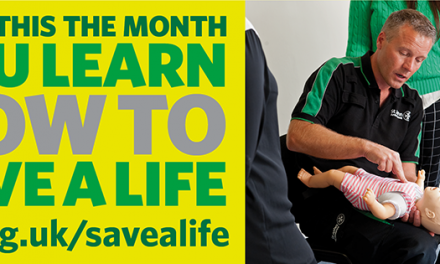Ballymena Today writes about lots of great charities who are here to help you and the Samaritans offer a listening ear to anyone who needs to talk. On the Samaritans website there is also lots of helpful information about what to do if you are worried about a friend or a family member. One such article talks about how to start a difficult conversation with the person who you are concerned for.

Maybe you have noticed that they are not quite themselves, maybe a friend has been making some strange statements on twitter or Facebook, or you know that someone is going through a really hard time. It takes courage to speak up if you are worried and here is the Samaritans advice about how to start a difficult conversation:
Find a good time and place
Think about where and when to have the conversation before you start. Choose somewhere where the other person feels comfortable and has time to talk.
Ask gentle questions, and listen with care
You might feel that you don’t know how to help someone, because you don’t know what to tell them. But you shouldn’t tell them anything. Telling doesn’t help.
The best way to help is to ask questions. That way you leave the other person in control. By asking questions, the person you are talking with finds his or her own answers.
The more open the question the better
Questions that help someone talk through their problems instead of saying ‘yes’ or ‘no’ are the most useful. Questions like:
When – ‘When did you realise?’
Where – ‘Where did that happen?’
What – ‘What else happened?’
How – ‘How did that feel?’
Why – be careful with this one as it can make someone defensive. ‘What made you choose that’ or ‘What were you thinking about at the time’ are more effective.
At Samaritans, we call this style of conversation active listening.
Find out how they feel
Don’t forget to ask how this person is feeling. Sometimes people will talk you through all the facts of what happened, why it happened and what actions they are thinking of taking, but never say how they actually feel.
Revealing your innermost emotions – anger, sadness, fear, hope, jealously, despair and so on – can be a huge relief. It sometimes also gives clues about what the person is really most worried about.
Check they know where to get help
If someone has been feeling low for some time it is probably a good idea that they get some support, whether it is through talking to someone like a counsellor or getting some practical help. Useful questions you might ask them include:
‘Have you talked to anyone else about this?’
‘Would you like to get some help?’
‘Would you like me to come with you?’
Or, for someone who is reluctant to get help:
‘Do you have someone you trust you can go to?’
‘If it helps, you can talk to me any time.’
You can also suggest to your friend that the following sources of help may be useful:
Samaritans by phone: 08457 90 90 90; email jo@samaritans.org; face to face at one of our 200 branches around the country
If they don’t want help, don’t push them. Sometimes it’s easy to want to try and fix a person’s problems, or give them advice. It’s usually better for people to make their own decisions. Help them think of all the options, but leave the choice to them. Being there for them in other ways, like through socialising or helping with practical things, can also be a great source of support.
If you say the wrong thing, don’t panic
There is no perfect way to handle a difficult conversation, so don’t be too hard on yourself if it didn’t go as well as you had hoped. If you feel able to, put things right: “Last week I said … and I realise now that was insensitive so I’m sorry. What I meant to say was …”
Show you understand
Ask follow-up questions and repeat back the key things your friend has told you, using phrases like ‘So you’re saying…’, ‘So you think…’.
Look after yourself, and talk to someone too
Hearing someone else’s worries or problems can affect you too. Take time for yourself to do the things you enjoy, and if you need to talk, find somebody you trust to confide in. If you promised not to tell anyone else, you can call us, and we’ll keep it private. Don’t take on so much of other peoples’ problems that you yourself start feeling depressed.
At Ballymena Today we want to share information and article which will help others. Hopefully if you know someone who is in distress, or could benefit from a listening ear these tips from Samaritans has given you the help that you need. Click here to visit the Samaritans website.





